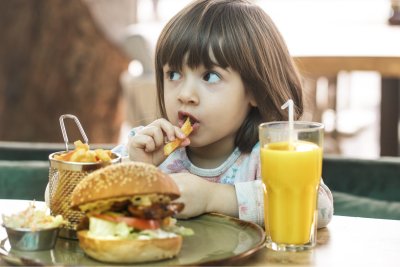News • Children's Food Campaign
UK government failing to protect consumers from 'chemical chicken' imports
Embargo: 00:01 Thursday 5 June
Following the announcement at the weekend of the first three identified cases of farm-animal MRSA in humans in the UK [1], seven public interest organisations [2] are calling on the Food Standards Agency's expert committee – meeting today [3] – to advise the Government to support EU member states in not allowing US imports of chicken that have been decontaminated with an antimicrobial wash [4].
Inappropriate use of antibiotics in agriculture has long been linked to the increasingly serious problem of antibiotic resistance in humans, with many hospitals already using last resort antibiotics to treat some illnesses [5].
Richard Young, the Soil Association's specialist on this issue, noted: “The recent European Food Safety Authority opinion clearly states that these four antimicrobials could, indirectly, spread the problem of resistance to antibiotics used in human medicine. Waste water from slaughterhouses using such products is also a threat to river water quality, as has been recognised by an EU Scientific Committee.[6]”
The EU banned antimicrobial washes for poultry meat in 1997, effectively prohibiting imports of such treated products. The practice is widely used in the US chicken industry, so the ban is the subject of a trade dispute. Recent negotiations have reopened the possibility of lifting the ban but, despite the risks, the UK abstained in a recent meeting of experts [7], leaving it isolated among the other 26 Member States who voted to keep the ban.
Philip Lymbery, Chief Executive of Compassion in World Farming, added: “Using these chemicals is likely to take pressure off some producers to tackle the causes of bacterial contamination at source. Allowing decontamination with antimicrobials will probably hide problems on-farm which have animal welfare implications.”
Jeanette Longfield, Co-ordinator of Sustain, concluded: “As well as these risks to human health and animal welfare, consumers are not likely to welcome the idea of eating chicken disinfected with chemicals. Only a few years ago unscrupulous UK traders were convicted for selling out-of-date or condemned chicken that had been decontaminated with sodium hypochlorite. The Food Standards Agency should stand firm and protect the public, not just to cave into pressure from the US to promote substandard chicken.”
Contact:
Richard Young - 01386 858235
Philip Lymbery – 01483-521-955 or 07818-071-918
Jeanette Longfield – 0203 5596 777 (w) or 020-8566-1761 (h)
NOTES
1) “Farm-animal MRSA strain found in the UK” – Soil Association press release, 2 June 2008
2) Compassion in World Farming - Philip Lymbery, Chief Executive
Farm Animal Welfare Network - Clare Druce, Director
Food Commission - Jessica Mitchell, Director
Food Ethics Council - Tom MacMillan, Chief Executive
Organic Research Centre - Richard Sanders, Senior Policy Researcher
Soil Association - Peter Melchett, Policy Director
Sustain: the alliance for better food and farming - Jeanette Longfield, Co-ordinator
3) The Advisory Committee on the Microbiological Safety of Food is holding a regular open meeting on Thursday 5 June.
4) The antimicrobial wash can contain trisodium phosphate, acidified sodium chlorite, chlorine dioxide, and peroxyacids. Although not the same as antibiotics, the effects can be similar and linked.
5) Reported at a Food Standards Agency meeting on 29th November 2007: “Antimicrobial resistance: to what extent does the food chain contribute to this problem?” The first official report on this problem – the Netherthorpe report – was published in 1962. This was followed by the Swann report (1969), Lamming report (1992), a House of Lords report (1998) and a previous report from the FSA's ACMSF in 1999.
6) “Environmental impact and effect on antimicrobial resistance of four substances used for the removal of microbial surface contamination of poultry carcasses”, Scientific Committee on Health and Environmental Risks, 2 April 2008
7) The Standing Committee on Food chain and Animal Health discussed this at their 2 June meeting.
Published Wednesday 4 June 2008
Children's Food Campaign: Better food and food teaching for children in schools, and protection of children from junk food marketing are the aims of Sustain's high-profile Children's Food Campaign. We also want clear food labelling that can be understood by everyone, including children.





